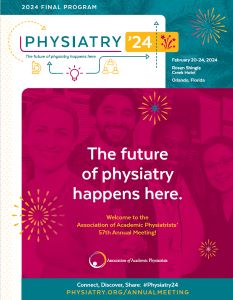Pain
Poster Gallery
899 - Pre-surgical Opioid Exposure on Patient Reported Outcomes: A Retrospective Study
Friday, February 23, 2024
5:00 PM - 6:30 PM EDT
- BK
Bethany M. Kavalakatt, BS
Intern
Lake Erie College of Osteopathic Medicine
Bradenton, Florida, United States
Presenting Author(s)
Objectives: Opioids have been used a form of therapy for those undergoing chronic pain. Although physiatrists are aware of the clinical effects opioid exposure may have on recovery after surgery, the understanding of how opioid exposure impacts patient-reported outcomes remains incomplete. Hence, it is imperative to gain insight into the repercussions of opioid utilization and how these analgesics may hinder postoperative recovery and quality of life. The objective of this retrospective cohort study is to investigate the differences in clinical and patient-reported outcomes among patients after surgery based on the exposure of opioids in the year before surgery.
Design: Patients from a statewide registry are included if they underwent one of nine procedural categories between January 1, 2017, and October 31, 2019. The study evaluated patient assessments, overall satisfaction, quality of life, and surgery-related regret through a survey conducted between postoperative days 30 and 90. The survey featured questions such as "Do you regret your decision to undergo surgery?", "How would you rate your quality of life?", and "What's your satisfaction level with your post-surgery experience?" Respondents used a Likert Scale Rating system. Multilevel logistic regression models were employed to analyze the association between opioid exposure and patient-reported outcomes.
Results: Patient-reported outcomes including reported satisfaction, regret, and quality of life were worse with increasing preoperative opioid exposure for most outcomes. There was no significant difference in the predicted probability of reporting ‘no regret’ with increasing opioid use, or when comparing patients with any opioid exposure to opioid naïve patients. These associations remained after sensitivity analyses where patients with any complications were excluded.
Conclusions: This study, conducted on a substantial and diverse cohort, highlights a significant correlation between preoperative opioid exposure and adverse patient-reported outcomes, particularly in terms of quality of life.
Design: Patients from a statewide registry are included if they underwent one of nine procedural categories between January 1, 2017, and October 31, 2019. The study evaluated patient assessments, overall satisfaction, quality of life, and surgery-related regret through a survey conducted between postoperative days 30 and 90. The survey featured questions such as "Do you regret your decision to undergo surgery?", "How would you rate your quality of life?", and "What's your satisfaction level with your post-surgery experience?" Respondents used a Likert Scale Rating system. Multilevel logistic regression models were employed to analyze the association between opioid exposure and patient-reported outcomes.
Results: Patient-reported outcomes including reported satisfaction, regret, and quality of life were worse with increasing preoperative opioid exposure for most outcomes. There was no significant difference in the predicted probability of reporting ‘no regret’ with increasing opioid use, or when comparing patients with any opioid exposure to opioid naïve patients. These associations remained after sensitivity analyses where patients with any complications were excluded.
Conclusions: This study, conducted on a substantial and diverse cohort, highlights a significant correlation between preoperative opioid exposure and adverse patient-reported outcomes, particularly in terms of quality of life.

